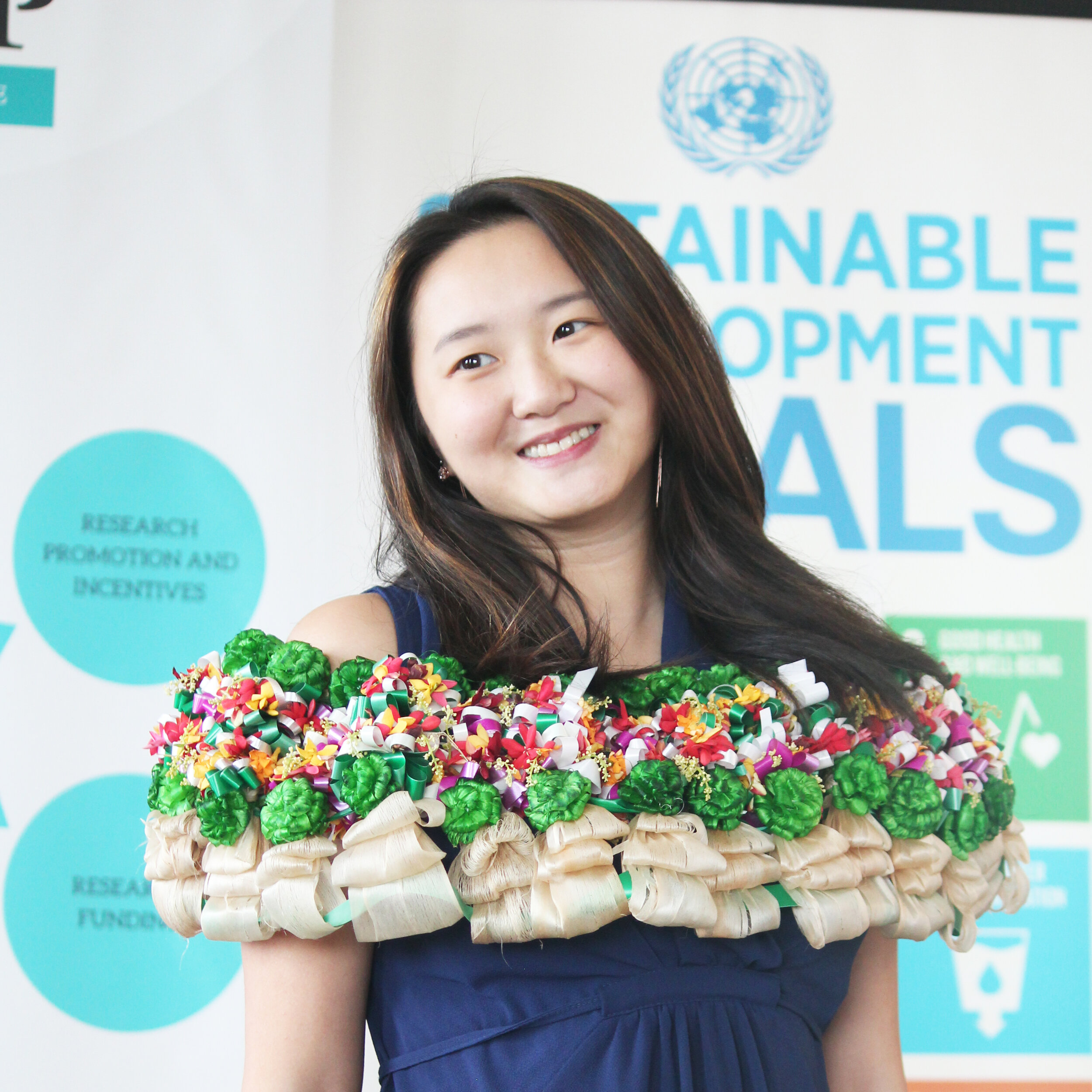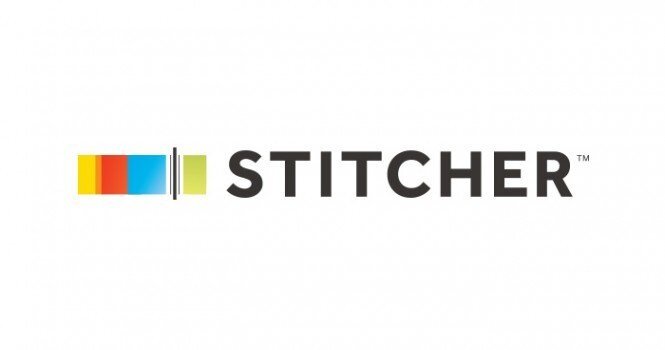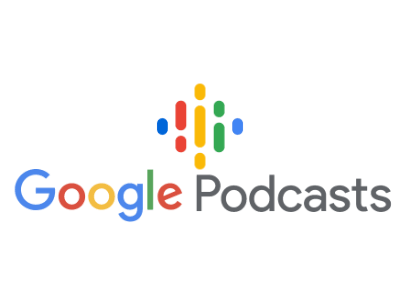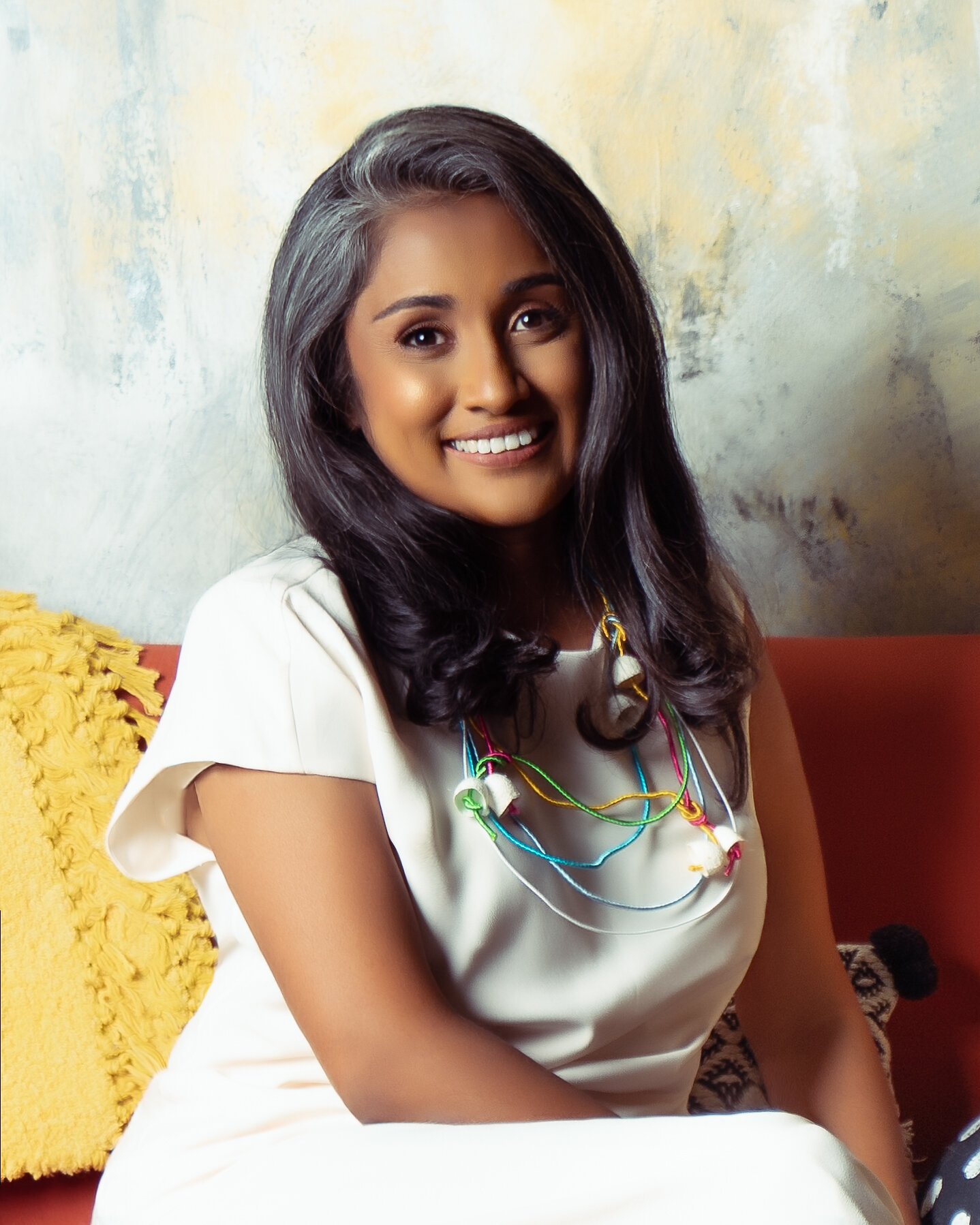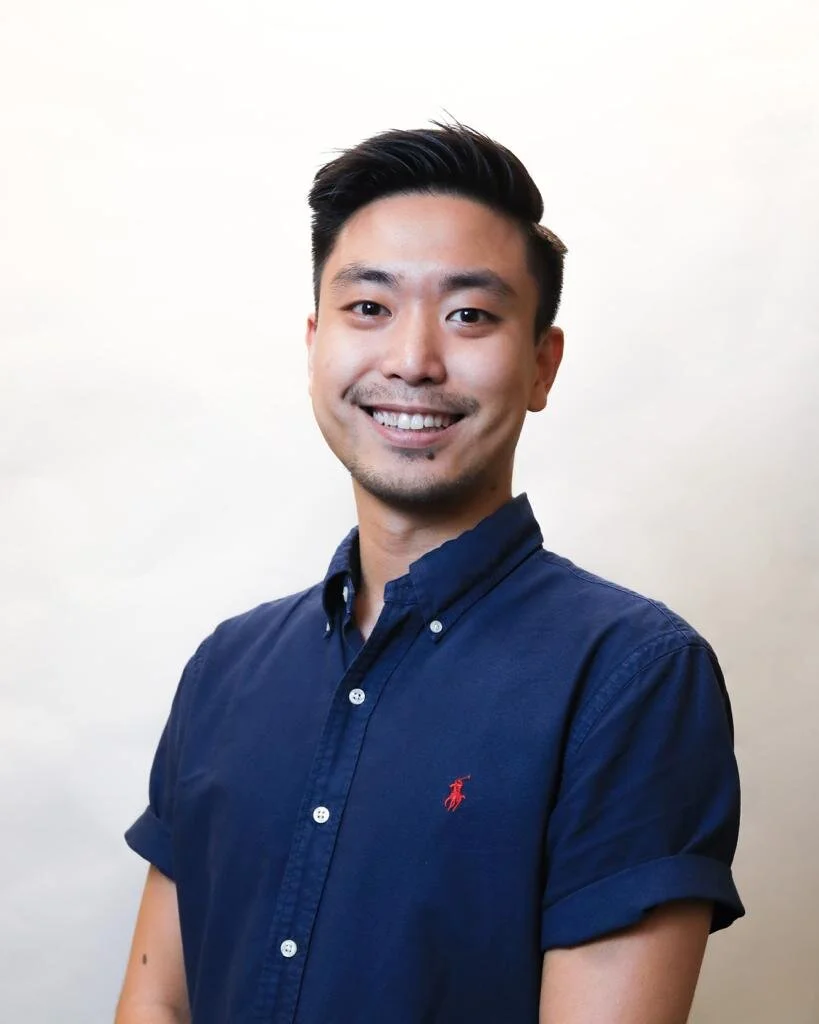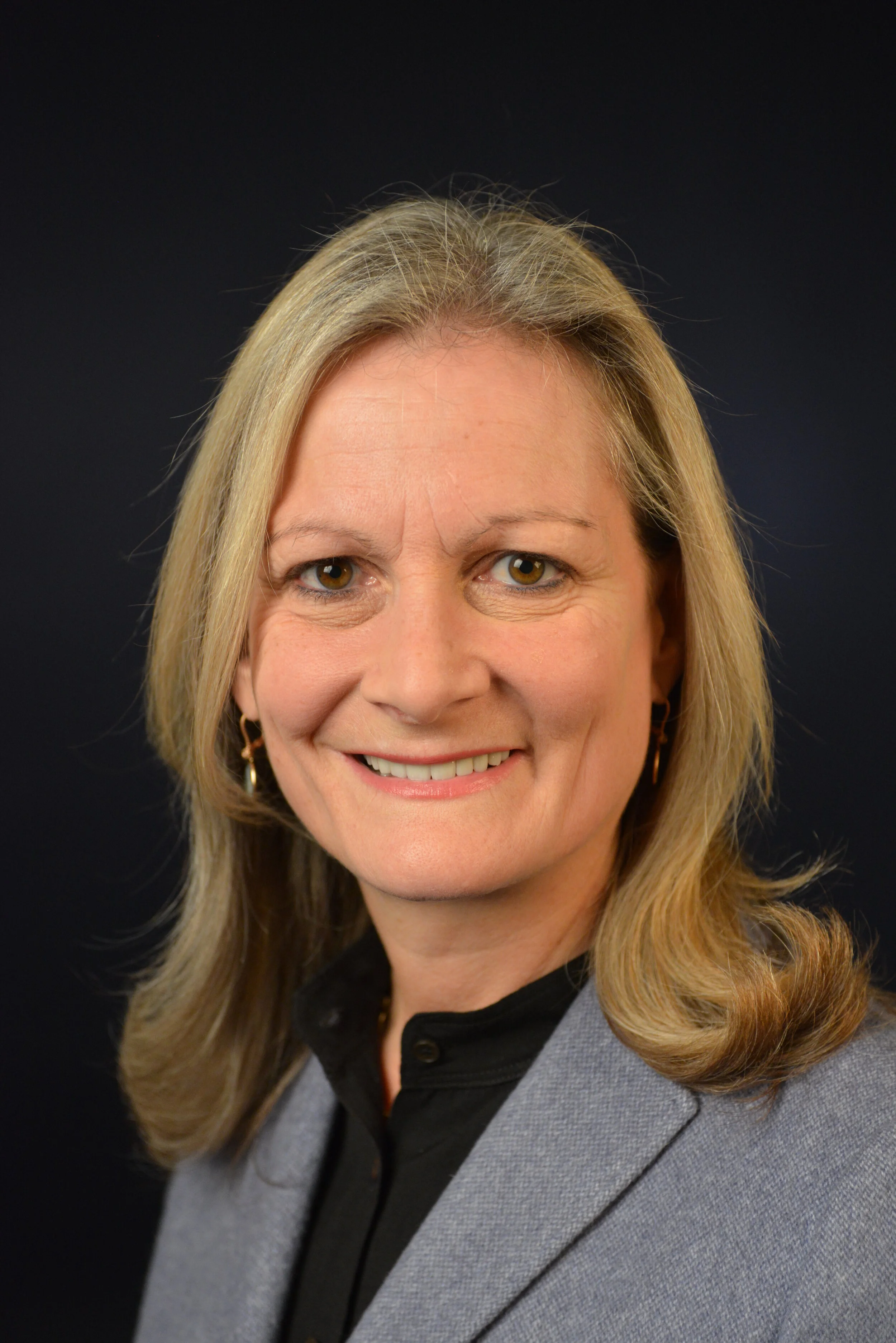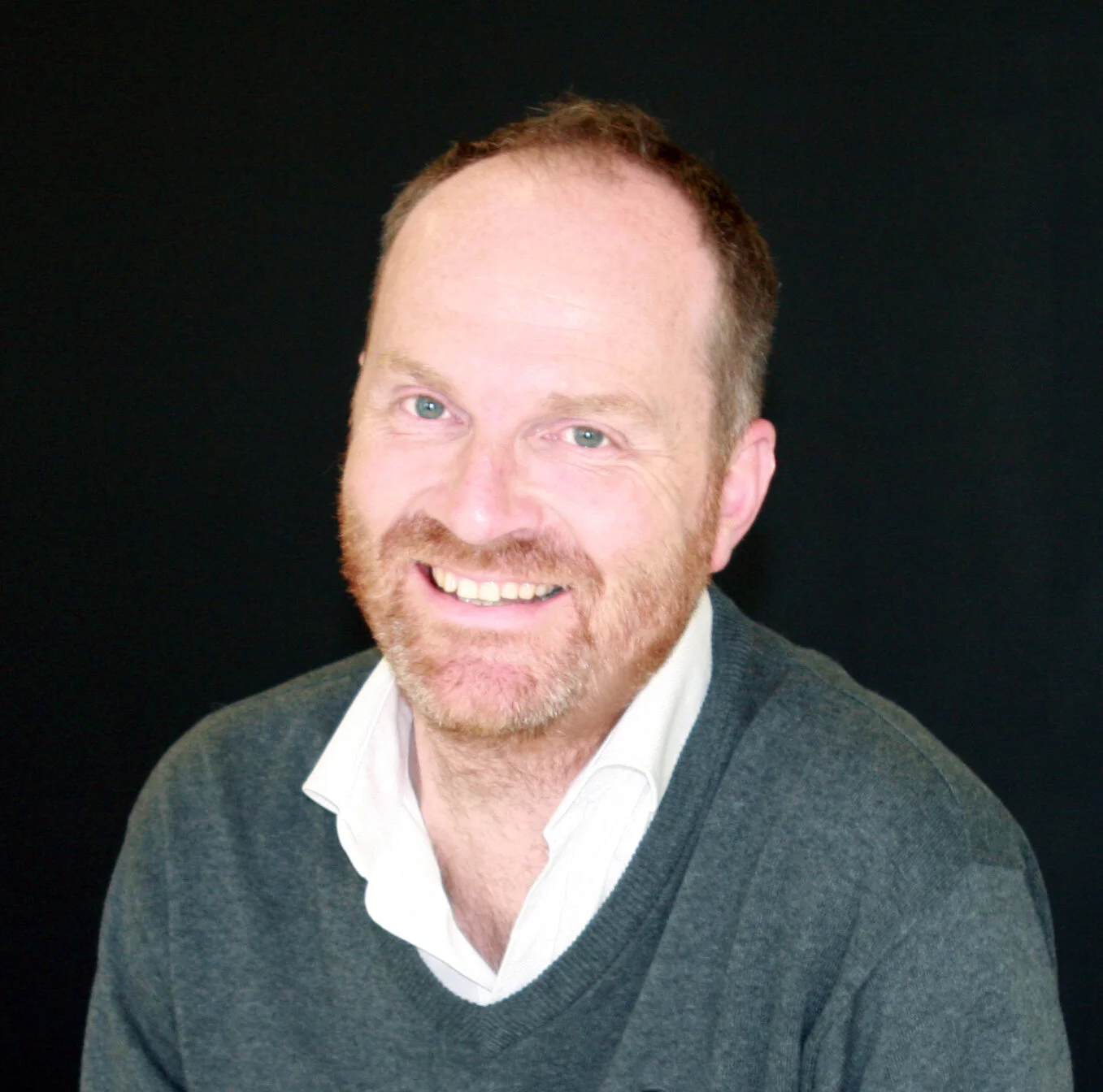Cynthia Cheung, Incubation Program Lead at UNDP and Citi Foundation's Youth Co:Lab
Today I have a very special guest for you dialling in from Bangkok, Thailand. She leads the incubation programs for young entrepreneurs in over 24 countries at the Youth Co:Lab, an initiative co-led by the UNDP Asia-Pacific and Citi Foundation to economically empower the next generation in the region, through youth entrepreneurship and government innovation.
Prior to joining the United Nations Development Programme, she founded various tech startups and social enterprises to economically empower the marginalised, and mobilised the youth to travel and learn. She studied business and soon realised the power of technology when managing companies, hence later learnt to become a front-end developer, then emerged to be a software consultant to develop analytics solutions for international corporates. She has a deep passion for future skills education and financial inclusion for women, and is always intrigued to learn about new ways to advance development through her travels.
Cynthia Cheung, Youth Social Entrepreneurship and Innovation Consultant, United Nations Development Programme
Episode Transcript
Amra Naidoo 00:03
Hi, and welcome to the doing good podcast. My name is Amra Naidoo and I'm your host. Together, we're going to speak to leading experts and changemakers in their fields, people who are doing their part to create a better world. We're going to hear more about the issues that they're working on, what drives them, how they got started, and what their biggest challenges are, you're going to use our all access pass to understand what impact really means to them. Before we get started, I just wanted to say thanks to you. I'm so passionate about creating impact and leaving this world about better. And you must feel the same way, which is why you're joining me on this journey. So thanks for tuning into the doing good podcast. Now let's get into this episode. Okay, hi, everyone. It's Amra here and welcome back to another episode of The doing good podcast. So today, I have a very special guest for you dialling in from Bangkok in Thailand. And she needs the incubation programmes for young entrepreneurs in over 24 countries at the youth collab, which is an initiative co led by UNDP, Asia Pacific and Citi foundation. So we're going to find out more about all that in just a second. But in the meantime, I'd love to welcome Cynthia to the show. Hi, Cynthia!
Cynthia Cheung 01:06
Hey everybody, thank you for having me on the show.
Amra Naidoo 01:08
Good to have you. Welcome to the doing good podcast. So I'm really excited to have you here today, I think we're gonna have a lot of fun, like we've met a couple of times, and I think we have a good time all the time. This is gonna be a nice, casual conversation. So I guess, um, first question is you work for or after youth colab, which is co led by UNDP. So what is the youth colab? And how is UNDP involved in all of this?
Cynthia Cheung 01:31
Absolutely. Thank you so much. Um, so the you fill up is an initiative, anchored in the UNDP, but co lead and working with a lot of partners. So our co leading partner is city foundation. So we work with them to best enhance our businesses for the SDGs is we specially work with young entrepreneurs in the region. Because we have 60% of the youth bulge in the world in this region, that 700 million young people in the world. So in this particular region of the world. So there is a lot of them. And as you also know that in this region, there is a lot of young entrepreneurs, or young people who have a lot of passion, the opportunities has not been so evenly distributed. So I think UNDP is luxury and mandate is to bring those opportunities to young people who are in probably conflict areas or in private sector, less Least Developed engaged areas as well. So that's our mandate. And that's also why we're different from some of the many other different initiatives like even the incubation and innovation initiatives in the Silicon Valley or even in Singapore. I think a lot of these initiatives are really awesome and focusing maybe like the really top people in the world. And we also focus very awesome people. But maybe they have a bit of a level playing field work to do before they can reach to that full potential.
Amra Naidoo 02:34
So what are some of the countries that you work with? So it's around Asia Pacific, can you guess, give us an idea? So in the countries where everyone's
Cynthia Cheung 02:40
Sure. So at the UNDP, we're situated in Bangkok, so we call the Bangkok regional hub, which is the Asia Pacific quarters for the United Nations Development Programme. And with that, we have 24 country offices, and we look after over 30 countries in the region. So all the way from Afghanistan, Pakistan, up in Mongolia, down to Timor Leste, New Zealand. Okay, maybe not cut that. With because you've got love, we also have initiatives in New Zealand and Australia through the city partnership, because UNDP is mostly in developing while UNDP.
Amra Naidoo 03:09
Yeah, actually, you know, tell us what the UNDP does?
Cynthia Cheung 03:13
We also stretch towards the Pacific. So I think the right, so, so that's the region and of course, of course the UNDP I think prior to me joining I also have very little clue what the United Nations has a very big family of agencies. So yeah, who has been quite prominent these days for very unfortunate reasons, or the pandemic but we also have the world back. And we also have UNICEF, which is for children and UNESCO, which is for education. And obviously UN Women, which you're more familiar with. We have UNDP, which is specifically, it's very much cross cutting towards maybe all the other, it's more like towards government governance, and also helping countries to better best develop their nation. So I think build resilience is one of our taglines. So obviously, intrapreneurship, we see it as a way of building resilience. Because once you fail, you have to get back up. And that takes courage. And that takes resilience.
Amra Naidoo 04:01
And so you work with youth in particular, what do you consider youth? Because I've seen some programmes, which are like, you know, 40 (years old), up to 40 of them, like, Is that still youth?
Cynthia Cheung 04:09
Some are young at heart. So for us across the, at the regional level, we consider 18, to 29. But we also respect each of the nation's constitution. So I think in some of the Pacific Islands, or even in Nepal, they go up to 40, obviously, in some of the region where they are considered to be a bit younger, but we also have the blanket of 18 to 29, in the regional setting as well.
Amra Naidoo 04:29
Okay. And so, can you talk a little bit about the incubation programmes? What do they look like?
Cynthia Cheung 06:26
Sure, the incubation programmes, I think the overarching umbrella is called the Springboard Programme. For us, we wanted to be more so that it is a bridging for them to go to the next step. For us to level the playing field, as that has been our mandate hashtag leave no one behind. From that, we understand and we see like, what are some of the great entrepreneurs that are out there. So through our country office, and through our national dialogue, we do have National Physical programmes in each of the country offices that we work with. And with that, we're gonna, we're gonna like a very a whole bunch of really exciting young entrepreneurs who have who have done really amazing roles on grass on the ground. And obviously, a lot of them English might not be the first language and also, for them, maybe taking on the stage would be like the first time ever, in their life, they did not have the same exposure, they did not have the same education as probably people in Singapore, people in Hong Kong. So I think for us, the springboard programme really helped them to prepare, how they can best tell their stories, because we understand that they're doing amazing things on the ground. But as you know, entrepreneurs, if they're not, if they're not able to tell the story in the shortest amount of time, in the most engaging way, it actually puts them in a bit of a disadvantage. And so the whole springboard programme is very tailored to very much on storytelling branding, how can they build a portfolio? we reverse engineer, we look at a lot of application programmes out there for grants for accelerators, or incubators. So we kind of look at all the questions that they asked them, we kind of reverse engineer. Okay, so someone who has not been to business school, like how do they understand what is the cap table? Like? What is what is branding? Like, what is marketing? I mean, yeah, we take kids, so for granted, like for some of the things that we say, and we kind of know, like, we think, oh, marketing, like, sure for peace. But I think I do think there are new ways of doing it. And even we are also learning and, and we're also learning from partners, like yourself, of what are the latest things that investors are looking for? What are the latest things that people are looking for? And how can we help to bridge the gap for people who might not have the same education, but they're doing amazing things?
Amra Naidoo 08:56
Yeah. And so can you talk a little bit about the entrepreneurs? Like, what are the kinds of things that they do out there? I mean, so this is a little bit of a bias question, because I obviously know the answer. For those listening, like some background is that we love this UNDP programme because at accelerating Asia, we have actually had quite a few entrepreneurs that have gone through the programme and then come to accelerating Asia. And I love it because they just combine impact and business in such a solid way. And they're just really nice, well rounded people. They're just really nice to get along with as well. And so my, you shouldn't have favourites, but one of my favourites kind of entrepreneurs, always comes from your programme. So I guess for those who are listening out there, um, can you talk a little bit about, you know, what some of these entrepreneurs do?
Cynthia Cheung 09:51
Sure. So I think there's a whole spectrum. I think before I get to the individuals, I know we have a whole spectrum. So as you can imagine, I think we are one of the most inclusive and diverse bunch of young innovators in the region. Because purely because of our reaching the unreached. And also the geographical locations that we operate in. So in the Pacific, we have anything from very, like, we work with all of indigenous founders as well. And we have people making pilot juice, pineapple juice in the Solomon Islands, all the way from people who are also working in agriculture, like a farmer in Bangladesh, we do have a lot of tech for good companies. And we also have a lot of artisans, who produce really amazing products with their communities as well. So I think even like for, like tech platform, that thing engages with women and chefs who can. So foot Mario, they, they're a platform that helps distributes our home cooked food from home chefs like mothers and so that they can earn an extra income. And then they distributed to young professionals in Kathmandu. So they can't cook. And they miss home. But then mother is not near at that point. So I think even with COVID there have really reinvent, how do they become like the thing we have to grab fresh and here. Maybe you guys also have grabbed fresh in Singapore, right. So that they have reinvented themselves to do so it's like, grocery shopping for Okay, yeah, like deliveries, of course, you know. So I think young entrepreneurs these days in this region are very versatile. So that's very rare, like we do see a very wide range, even coffee. So I do think there is a wide range of agriculture and agri tech as well as like agriculture enhancing solutions. And obviously, we do have more of like, inclusive teams as well, where we work with DeafTalk, also one of the 2% of the people Accelerating Asia. And so they are a platform that helps people to interpret and also the Uber for sign language interpretation. So that also helps people to get into education, high level, tertiary education, it helps patients in hospital and clinics to communicate better with doctors, and it helps people to get job interviews, on and so on, and so forth, and also create a lot of jobs for interpreters and making the people the deaf community people lives easier. So I think various things like just encouraging, and we're very happy to be supporting a very large portfolio of very passionate entrepreneurs as well.
Amra Naidoo 12:52
And how do you how do you find these entrepreneurs? And I guess, how do you select them as well, because I guess not everyone can get into your programme.
Cynthia Cheung 13:01
Sure, actually, we tried to make it as accessible as possible, and even sometimes, so each of the time, we work with our country office. So our regional office work with our country UNDP country office, which works with a lot of partners on the national ground. So we run something called the national dialogue, which is essentially an Innovation Challenge for the young people are also bringing together the government, as well as the stakeholders on the same table. So then we have a meaningful dialogue, national dialogue, dialogue, they're able to pitch their ideas to the stakeholders and the governments. And with that, we we select. So it's like a mini competition. But we it's more like a learning process for the ecosystem where everybody can chip in. And then with that, the teams from the national team will come to the regional springboard, but I think more and more will actually implementing national springboard, which is more towards building the business on the ground, which means like how to get it on how to get it off how to get registered, each of the countries is very different. So it doesn't make sense from people sitting on the regional side kind of telling them yeah, you should register your company from that, like I have no bank account just difficult income some countries that are not right. So yeah, so we have that side. And, and we we are the as the regional side, we would have the the nomination and also the winners of entrepreneurs from our country offices, the National dialogues.
Amra Naidoo 14:38
And so how do you guys look at impact and impact measurement? I think you mentioned that all of the entrepreneurs that you work with are kind of addressing an SDG or Sustainable Development Goal. Is that tied in to I guess how you measure their impact going forward?
Cynthia Cheung 14:57
Yes, absolutely. So I mean, the UN has the SDGs. For anybody, right? But by 2030, we still have a couple of years to go. So with the SDGs, we have 17 goals, we have a lot of targets and indicators that a lot of people don't know about. So we, we, when we're at the national level, of course, we talk about I mean, social entrepreneurs, but we actually call them SDG solutions, because it just makes it so much more inclusive. Because when there's a connotation that when you're social enterprise, then you're not making any money or something like that. And but actually StG solutions can be a business and even for profit businesses can have SDG impact rates. So SDG solutions for us, when they come in the programme, they obviously have to admit they have to self identify, first of all, to make sure that they understand, oh, well destitute,
Amra Naidoo 16:03
Do they pick they pick an SDG? And they pick a target and an indicator? Or do you guys like how does that work?
Cynthia Cheung 16:11
I think at the beginning, they will pick an SDG, I think it would self identify an SDG that would that they think is most relevant to their solution. Obviously, throughout the course of the of the period that were together, then we do tell them, Hey, did you know there's this target, hey, this, you know, there is this indicator, and I think is also part of the journey, because SDG can be quite an overwhelming framework for people who you have never seen like any, like, I mean, they doing good, like, Why does it have to be so complicated? I think SDG mainstreaming is also one of the things that we do, which means a lot of the startups in the tech world might not associate themselves with the SDGs as well, but they have so much impact on climate change, they have so much impact on employment. And for us, it's just basically mainstreaming the idea. And actually, for us, it's not just SDG is the right thing to do. But it's more like if you align with your vision or like your impact with the SDGs, then that's actually a lot of resources you can unlock. So I think that's like the, the angle that we can push it to.
Amra Naidoo 17:23
And so do you, how do you track the impact that you guys are making as part of this programme? And I guess, the startups or social entrepreneurs and making as well?
Cynthia Cheung 17:33
Sure, so we have the impact measurement as one of the modules. So before they join, so when they apply, we already know what they self identify with. And then throughout the programme, they also have this impact met Well, we call it impact Management module, because it's not just about measuring is also managing the whole process of measuring. So measuring is only one of the way of reporting, but managing is very much of the theory of change. Because I think, if you tell if you ask people like so what, what, why, why does start up? And why is you doing it, there's always a theory of change. But theory of change is like so UNDP. And so like. So that all the like we have really broken it down into four steps to help people to basically they interact, each choose the StG, and then they go and click through the database and see which of the indicators and which of the targets that they do work towards. I think a lot of it was discovering a lot of ways was treasure hunting. Yeah, I think because it's more like they're already doing something. And then they're trying to align that towards the goal, rather than like they're trying to look for the goal and trying to find something that they want to contribute to and then do something about it. It could work both ways. I think in this particular cohort, they are doing it that though, we are still consolidating the results. So for the previous cohort were much more measuring on to the how I mean, we're also not just measuring their success, but also like how can how much of our attribution help can help them. So one of the ways is also right, so what's your theory? there? Brilliant. That's a good class.
Amra Naidoo 19:26
I guess maybe we should rewind for people who don't know what is a theory of change?
Cynthia Cheung 19:32
Sure. So to put it very, very simply is explaining why you think a change what happened with your solution. Is that clear?
Amra Naidoo 19:44
I don't know why people make it out to be so complicated. But that's it.
Cynthia Cheung 19:48
That's essentially that's essentially it, like don't be too put off by it, but I can definitely send you the link, if anyone is to make their own theory of change 101 Hashtag UNDP. So if you're interested in making your own theory of change, as it's a lot easier than I thought as well, after I look at the module, which impact management consultant has, has made up for us as well, yeah, we also track how, how much of the me because it's also like creating values, right? So how do we create, like, how do we measure what value and how do we measure? How do we measure the values that we create? So previously, we do it quite briefly on top in terms of how many jobs are those teams creating as a cohort as our alumni cohort? And how many revenue they're making? And also how much of the investment that they have raised towards, towards advancing their goals? I mean, if if their business's success succeeding, it means that they're achieving some one goals, right.
Amra Naidoo 20:55
We have exactly the same view of it. I think it's also because they're so early on in their journey, that it's really difficult to say, okay, you should have a full impact management framework, because who's gonna first they need to hire someone to manage that. And itself. It's just, it's just not realistic at that stage, and their business is going to be changing so much, that, you know, what you might set as an impact, you know, measurement or a goal or something may not be the same in a couple of months time. So, yeah, I mean, we we do exactly the same thing.
Cynthia Cheung 21:30
I'd be interested to learn more from your day, you'll have more of the like more of a structured framework where we're still figuring it out.
Amra Naidoo 21:40
I think it's because the, our PowerPoints designed really well. So I guess, with the types of programmes that you're running, like, how, because you run other programmes as well. So can you talk a little bit about those other programmes and how they like fit into each other? Because I guess it's a spectrum of support that you provide to young people?
Cynthia Cheung 22:07
Yes, absolutely. So we also have something so we have what we call it like a three tier rainbow.
Amra Naidoo 22:17
You have a framework for everything.
Cynthia Cheung 22:20
Of course, real change. We have the, if you imagine that there's a rainbow here. So the rainbow core is obviously the young entrepreneurs. And so a lot of the times entrepreneur, because we do we do believe in founders, we do believe in young people. And obviously, there's also ideas that come and go. So there are people who are an entrepreneur, now they might be before or maybe they'd be after, so it can be young people. So the springboard programme is very much just for the entrepreneurs, or entrepreneurs at this time. But then obviously, there are young founders who are potential or who are who are emerging up or they would like to take a break from entrepreneurship because of various reasons in life. So we also have a movers programme, which is led by one of my colleagues, Kalinka and Dingle. So they're also my, my twins in the programme. And the movement programme really helped to build communities, and really is a is a skills based training for leadership. Because I think, when you're a founder, even facilitate facilitation skills as well. So I think a lot of the is small, like a personal development tool for people to learn how to run workshops, how to run discussions, I think those are like the qualities that we focus on, like, what makes a good founder, and how can we nurture or maybe it's not so daunting to start something and talk, talk to people. And yeah, so that's not just a founder training, but also like a community building, how can you build a community, you will need that for your customer, you will need that for making a movement. So that's movers, we also have the partnership Alliance. So that's the meet here, where I have my other colleagues. Um, so we work with a lot of our alliance partners, throughout our regional summits, and also our regional programmes. Because a lot of partners like yourself out they do also have their programme in helping entrepreneurs. So we're also here to learn and we're also here to see if there are opportunities from outside that we can offer to some of their entrepreneurs is also in various regional summits. We have also invited our partners as well as some of their nominated teams to come and learn from us and also our teams can learn from them as well. So it's, we call it the self self knowledge exchange, more geographical, like the book Yeah, whenever we have to do the regional summits, then that that's where our regional partners play a really big role. We also have the, the big rainbow who like the outer rainbow, which is the policy engagement and dialogue. So as UNDP uniquely positioned to be actually consulting, the governments, as a lot of the things we do on the ground is actually contributing to building data and building research for the policies for the different governments. So we do have, yeah, so we have at least 20 governments that we're working with just on how can we build? How can we make business easier? And I think that's like, that's like generally like a good way. For them for some of the ones which have already had a very robust economy, or private sector, then maybe we will be more niche in terms of like, how can we have more social entrepreneurship policy? Like what what are the tax rate like for those people, right? How can we empower more young people, but I think in this region, where it's safe to say that if we can make businesses easier in a lot of the times, yeah, would have been doing a good job.
Amra Naidoo 26:17
So I mean, also, I guess, from the business side of things, you you studied business, and you founded your own, like tech startups and social enterprises. How did you? I guess, how did you get from that into UNDP? Like, how, what was the transition? Like?
Cynthia Cheung 26:37
Yeah, thank you. Oh, no, I think I have when I was doing my degrees and studies I have never thought about but I thought UN is, is a very awesome place. But it's not where me being Chinese. I'm like, No, I think I think business is gonna catch on. So I did spend a couple of years in private sector. Um, but then again, I was also thinking, Okay, like, I was in some of the big four accountancy for a mouse and big for Telecom. And then I was thinking like, Well, I mean, I was a small potato, and I still am. So the thing is, well, what difference do I make? Right? Like I could, I could be gone the next day, and and the company wouldn't care less. Right? And obviously, like, I'm very, like, action oriented person, like, if I want something done, obviously. I'm saying that from the UI now. So I guess things have changed. No, but like, I really felt like a lot of the change I wanted in the private companies were was slow. But I have really supportive bosses, which I learned a lot about business and how to scale operations. And then I learned about technology. I'm like, oh, like, yeah, it would have been great. If I have studied something else other than business. I think a lot of your buyers that that
Amra Naidoo 27:53
You studied software development as well?
Cynthia Cheung 27:57
Yes. So actually self taught that and I just my business skills, too, negotiate a contract to for people to hire me as with like, zero experience, but then I learned on the job. So I'm very thankful.
Amra Naidoo 28:14
Yeah, you got paid for it, too.
Cynthia Cheung 28:17
I'm a bit less than when I was in business, obviously, I was learning from scratch. So I really appreciated that experience. So then I actually got to appreciate the harder side of building a technology company, which I think a lot of founders might not have understood if they were just from a business background on and then with that, I've always been very into travelling and also are also building finance for like, financial inclusion for the underbanked. So for that, I do have my own company for helping travellers. Uh, well, now we say travellers in the pandemic, but yeah, so for helping to better manage their finances. But before that, I've also taken some What do you call it? quarter like quarter life crisis?
Amra Naidoo 29:11
Quarter life crisis? Yeah
Cynthia Cheung 29:13
Actually what a lot of crisis breaks. Yes. So we all know, so I was, yes, I went to like rural Myanmar for a while and then that's why I did something very similar to a farmer but that's why I got to lambda is actually a very viable business. But obviously nothing digital but very much on the I get to know more about the people who we've I now get to know more about the people who farm chicken farm and, and farming pigs as well. So I think I get to understand like in the community side, like what are some of the metres a lot of things that are missing in the whole banking system and also in the whole supply chain, so I'm really interested in micro financing and also helping intrapreneurs that way as well. So that's that. And then when I'm back in Hong Kong, I yeah, I work with a couple of my founders who I found that the previous company with, and then we're just like, oh, like, let's, let's still do something, and then we still run that company.
Amra Naidoo 30:23
So you do that on the side as well as well?. Okay, wow, what else do you do on the side? Because I saw you presenting for a startup weekend as well. Like, how many? What other things do you do?
Cynthia Cheung 30:41
I would say like, it's all like a sport. First Data weekend is something that I've been doing for the past six years, I think it's one of the things that I have learned my facilitation skills from, and it's something that I'm forever grateful to the community who is very, very amazing. And that's also where I met some of the people that I work with right now. So I do think it is a great network. And it is a great opportunity. And obviously, yes, with the latest COVID and started we can Singapore, that was really awesome to be connected with the ecosystem, with whole startup x team, as well as with some very, very awesome people.
Amra Naidoo 31:23
That whole event virtually, which is like incredible. So how did you get from founding the startup and then into the UNDP? Especially because you said yourself you never considered the UN? How did that happen?
Cynthia Cheung 31:40
I would say it's, I think coming out of my quarter life crisis Berg's, I understand. I mean, I've always been very interested about social entrepreneurship. Even when I was very young at uni, I also started a social enterprise that helps homeless people make Christmas cards. I know it sounds out in the blue and random Yes, it was. Um, yes, I can send you the link on TV. Yeah. I think that's when you're young, you're a bit more reckless, I hope I stay down and stay a bit reckless, but not too much. Um, but with that I have always been wanting to do social entrepreneurship. But as you said that I think from I think I also have shared a similar perspective, I didn't want to be branded as like a social enterprise, or I didn't, I try not to brand other people outside social enterprise. But I mean, in various locations, if it helps sell that show. It's just telling people about what people do, then I try to say it's a business that that contributes to good because I think it's also how the founder vision sees it. So when I was doing that in Myanmar, to see a lot of businesses who are making incredible impact to their communities. And I've always thought, like, what are some of the ways that we can help skill that so I do think working, working in the front line, and working in the field has really taught me some of the things that you can't learn in the office. And with that, I also met some of the team members, especially linka on the team who have been also volunteering at startup weekend. So when they also mentioned that they're expanding the team at the youth club, and I think they do say that if you're interested, I think it would also be a good fit to maybe your personality as well as your vision. So yeah, and so I met with the team, I also met with some of the founders. And then I thought, Okay, this is something that I can also work with. And this is quite aligned with what I'm trying to do in life.
Amra Naidoo 33:48
I love it. And I guess, I mean, so now I just want to go for a second into the head, Cynthia. So I do this thing with my guests called three things. And it's kind of like, because I think you're just gonna have so many interesting perspectives. And I feel like you're working on a million things at once, which is just, I don't know how you find time for that. Um, so basically three things is kind of like an empathy check or like a check on where you're at right now. So what are three things that you are, it could be anything that you want to share with the audience, something that you're thinking about problem that you're solving? It could be just a random thought that comes to mind it can be completely superficial or really, really deep, and it doesn't have to be related to your work or anything. But I guess just three things that you want to share that are on your mind right now.
Cynthia Cheung 34:46
Can you be more specific or to be very random?
Amra Naidoo 34:50
Very, it could be random. I mean, like, for example, I was just reading an article about how scientists still haven't figured out how eels reproduce. And I was like, that's random. Like, with all the technology that we have right now, how is that? How is that not possible? Um, so it could be something like that. Or it could be actually, you know, something work related that you are working on or you're thinking about? Or maybe it could be a call for help, you know, and ask to the people that are listening. That's fine, too.
Cynthia Cheung 35:26
Cool. Okay. Um, maybe I'll do a mixture of Yes. Like, I would say like, maybe starting from like the deeper end. I would say, I think what bothers me these days is, there are a lot of income disparity, I think it's been widened through the COVID. And I do think a lot of people have been trying. And I think we can also, as a like, as a preset audiences, and brands audience. We can also think more about the little things that we can start. And I do think it's the little things that start I do, I don't think innovation is like one big idea. Either you make it or you blew it, it's very much on, like, every day, you have an idea, and you build on it, and you have small innovation that compounded to something quite exponential in the long term. So don't be discouraged if you don't have something big at this point. But I think just looking into a problem. And then obviously, I think the second thing, which leads to that is also the empathy. Because if you understand the problem that you want to solve, or you're interested in solving, hopefully you have empathy for that, yeah. But genuinely having an empathy for something that you want to solve and a passion, something that you're angry about, then it can really set you up for something bigger, because you're likely to find someone who I mean, if you if you do it, and you you go out and you meet other people, you're likely to find some people who are of the same tribe. Also thinking that doing good is not just about talking, but it's actually doing so. Yeah, I think that's important. So I think that's second and then third one. Oh, no, I don't know. No, I don't know. I think the third one is, I am trying to bake. But I received one of those that actually mixes is my birthday, please. And then I've been trying to bake. But then I have been semi semi successful semi failing. So I'm still looking for good marang recipes on and also like an album. So I'm trying to blame it on my oven at this point. But But I'm sure it's it's also my fault as well. So yeah, no, I do think you need something that kills time these days. I think when when you're cooking, or when you're doing something totally irrelevant. And I think then sometimes something in your habit, click usually. So usually when I'm like really stuck at work, and then I'll maybe like, just go to something totally irrelevant. And then while I'm like cracking the eggs or something that like,
Amra Naidoo 38:28
I totally agree. And I just takes you out of that, you know, mindset and puts you in a completely different space where I think you have more freedom, you know, you're not stressed to come up with a solution and it just pops into your head.
Cynthia Cheung 38:42
Yes. And I do I think that also leaves you a lot of people think that they have to really specialise on something in order to excel in a certain role. Yes, if you're in the medical field, please do. Your help. Yeah, in an entrepreneurial role, that I think the more you try, and the more you fail and the more experience you have. And then I think it's the interconnectivity of your different pieces that have happened in your life that that has, that has that gives you a unique selling point. Yes, a lot of in front of a lot of people.
Amra Naidoo 39:16
I love that. I love that. And I guess on that note, unfortunately, that's kind of all the time that we have for today. But before we wrap up, I'm going to do my little spiel. So if you haven't already, please subscribe to the podcast on your favourite podcast app. So and while you're there, make sure you rate and review please and we spoke a little bit about action but also before that is awareness. So the first step to creating change is awareness. So please share your favourite episode with your friends, your family, your co workers, everybody. You can also check out doing good podcast comm for show notes and more information about each As the guests are featured, and if you've got any topics or guests that you'd love to see on the show, head to the website and let me know. Now how can people find out more information about what you're doing or reach out to you with any questions or anything?
Cynthia Cheung 40:15
Sure. So I do have a LinkedIn page a day, I can just share the link. Yeah. And also do follow the youth cola. So is at youth co lab or hashtag. So I also share that.
Amra Naidoo 40:30
Yeah. Awesome. Any more final hashtags to share. So thank you so much for tuning into this episode. And Cynthia, thank you so much for your time.
